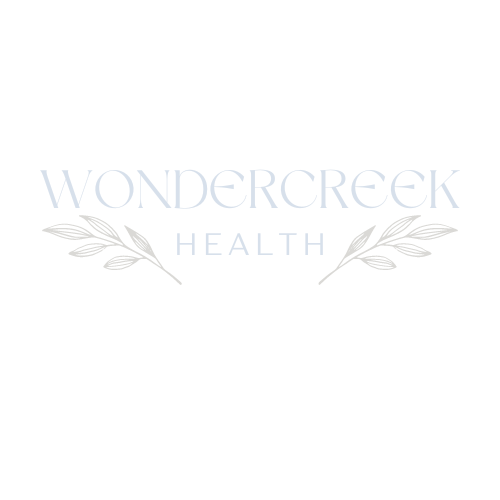WonderCreek Health
Comprehensive Midlife Care
Welcome to Wondercreek Health, nestled in the heart of Western North Carolina. Here, Dr. Anna, a Board Certified Family & Lifestyle Medicine Physician offers concierge-like care to her patients with a unique personalized approach. While she loves caring for all humans, she has a special expertise and dedication to women's health in midlife. Care at Wondercreek Health offers a sanctuary from the overlooked symptoms and misinformation you've faced elsewhere. With a passion fueled by decades in the practice of medicine as well as her personal experiences as a patient navigating the changes of midlife in the modern healthcare system, Dr. Anna is here to guide you through the changes and complexities of perimenopause/menopause with compassion, understanding and evidence-based solutions.
Currently, WonderCreek Health is currently full. We are onboarding new team members, check back soon!
Feel Like Yourself Again
Are you a female over 30 and feel like something is just off? Have you ever thought, "I just don't feel like myself?" Is what you did for years to stay healthy not working anymore? You have come to the right place and it is not "all in your head." The menopause transition begins for many women in their 30s and can last for more than 10 years and impacts every aspect of life. During this significant transitional phase in a woman's life, finding compassionate and knowledgeable medical care becomes a priority. Dr. Anna brings a wealth of experience and understanding to the women in her care.
With a focus on holistic wellness, Dr. Anna approaches menopause not merely as a set of symptoms to be managed but as a journey to be navigated with care and attention. Her personalized approach begins with a thorough evaluation of each patient's unique medical history, lifestyle, and individual concerns. Through open communication and empathy, she ensures that her patients feel heard and supported every step of the way.
Dr. Anna is well-versed in the latest advancements in menopause treatment, offering a range of options tailored to each patient's needs. Whether it's hormone replacement therapy, lifestyle modifications, or alternative therapies, she works closely with her patients to develop comprehensive treatment plans that promote both physical and emotional well-being.
Beyond medical interventions, Dr. Anna emphasizes the importance of education and empowerment. She takes the time to educate her patients about the changes occurring during midlife and equips them with the tools and knowledge necessary to make informed decisions about their health.
In Dr. Anna's practice, women in midlife find not only a skilled physician but also a trusted partner in their journey towards health and vitality.
WonderCreek Health's Philosophy
Tailor Made
Each one of us is as unique in how we approach life and health as our strands of DNA. We will respect your values, evaluate where you are and come up with a plan together to guide you towards optimal health at each stage of life. This includes recommending screenings, medications/supplements and lifestyle modifications that will bring value, not just check boxes for a healthcare system worried about metrics. Our sole priority is YOU!
Lifestyle Is Key
Unfortunately, our current medical system has been built to prolong your life with disease, not prevent the disease from ever occurring. Lifestyle changes should never be underestimated in their power to create an environment in your body that naturally wards off many of the diseases that our population is suffering from. Medications are often needed, and we are capable and happy to prescribe when needed. Our approach, however, is to give you the tools to make sustainable lifestyle changes that minimize the need for many chronic disease medications.
Women's Health
Could it be your hormones? The answer is always YES! For women at any age, it is important to understand the role hormones play in our bodies. Understanding and respecting the impact these chemicals have on our brains and bodies through each stage of life can give us power over our own health. At WonderCreek Health we have a special interest in the care of women in perimenopause & menopause. If you are struggling through midlife in any way, you are not alone and there is so much we can do to get you feeling like YOU again! Let's Talk!
WonderCreek Health Blog










Words To Live By
Have Questions?
Are you almost ready to take the first step towards a healthier and more vibrant midlife?
Don't wait another moment. Take the leap and start living! If you have additional questions before signing up, message Dr. Anna now.



